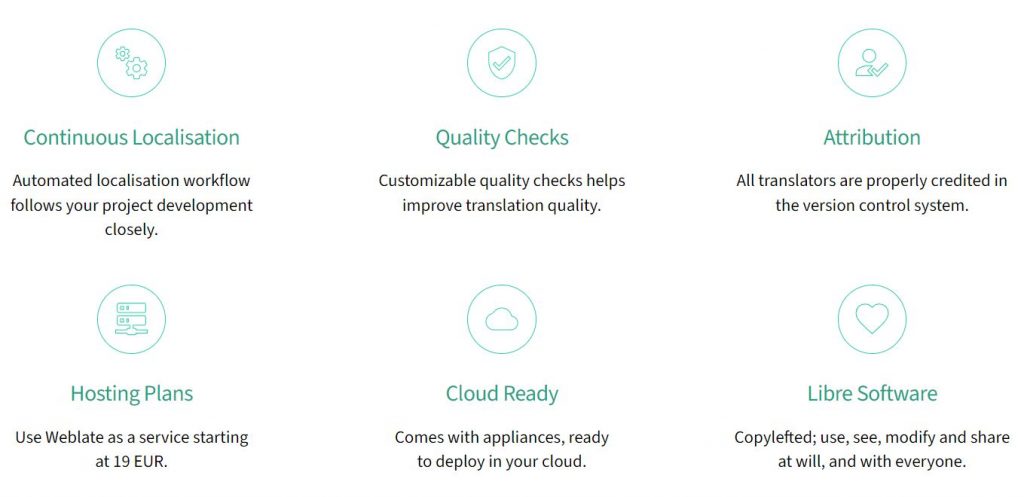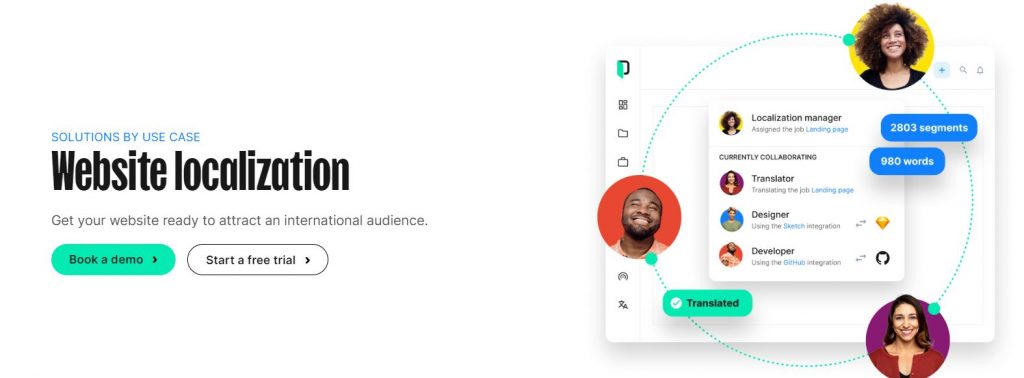The Importance of Localization in Hosting: Serving Customers in Multiple Countries and Languages
1. Introduction
Welcome aboard as we embark on an insightful journey towards understanding the vast digital landscape and its nuances, focusing today on the importance of localization in hosting. Are you ready to dive deep into the world of serving customers across different countries and languages? Well, let’s jump right in!
Localization – a term you might have often heard in the corridors of the digital world, but what does it really mean in the context of hosting? In simple terms, localization is about making your online platform feel familiar and user-friendly to people across different regions of the world. It goes beyond just translating the language – it’s about cultural adaptation, considering local legalities, working with local currencies, and catering to local user experience expectations.
In the grand scheme of your online presence, localization plays a pivotal role in making you a global player. By serving customers in their own languages and catering to their local preferences, you not only grow your audience base but also cultivate long-lasting relationships with them. So, if you’re dreaming big for your online platform, remember – think globally, act locally. Stay tuned for more insights into the world of hosting localization!
In the following sections, we will delve deeper into the concept of localization in hosting and explore why it is crucial for achieving a successful online presence. We will provide practical insights, strategies, and best practices to help you effectively serve customers in multiple countries and languages. So, let’s embark on this journey together and uncover the transformative power of localization in hosting for your business.

2. Understanding Localization in Hosting
So, what exactly is localization in the context of web hosting? Picture this: You’re throwing a worldwide party and want to make every guest feel at home. To achieve this, you would cater to their individual dietary preferences, greet them in their native language, and even play their local music. Similarly, localization in hosting is about creating an online space that feels like ‘home’ to every user, irrespective of their geographic location or cultural context.
Pro Tip: According to CSA Research, businesses that expanded their translation efforts experienced a 1.5 times increase in total revenue.

3. Benefits of Localization in Hosting
So, folks, remember – the magic mantra for a truly global digital presence is a robust localization strategy. It’s about going that extra mile to understand and respect your users’ cultures and experiences, ultimately leading to a stronger connection and a higher trust factor. Keep following our journey as we explore more about hosting localization!
Let’s shift gears and ride into the rewarding landscape of localization in hosting. In this segment, we’re going to shine a light on the remarkable benefits of localization. Ready to dig in? Here we go!
- Improved User Experience: Think about the feeling of walking into a store where everyone speaks your language and the products are tailored to your needs. That’s the kind of welcoming environment you create online when you localize your website. By catering to your users’ language, cultural nuances, and local standards, you can ensure a smooth, enjoyable, and relatable user experience that keeps them coming back.
- Increased Conversion Rates: Here’s a fun fact – studies suggest that consumers are significantly more likely to purchase a product online when the information is presented in their native language. By localizing your website, you’re not only building trust with your potential customers but also paving the way for higher conversion rates.
- Expanded Market Reach: If your website speaks only one language, you’re reaching a fraction of the potential internet users worldwide. Localization tears down language barriers and unlocks the door to audiences across the globe, offering an exponential increase in your market reach.
- Enhanced SEO Performance: Yes, localization can also give your SEO a significant boost! By implementing local SEO practices and optimizing your site for different languages and regions, you can improve your visibility on local search results and attract more organic traffic.
Pro Tip: A study by Common Sense Advisory found that 55% of global consumers prefer to buy in their native language.
4. Key Considerations for Localization
In a nutshell, localization in hosting is your golden ticket to a more engaging user experience, increased conversions, a wider market reach, and better SEO performance. As the internet continues to shrink the world into a global village, mastering localization can truly set your platform apart and give it the global appeal it needs to thrive. So, stay ahead of the curve and make the world your marketplace with effective localization. More insights coming your way in the next segment, so stay tuned!
Now that we’ve established the importance of localization and its benefits, let’s turn our attention to some key considerations you need to keep in mind when localizing your website or online platform. Here’s your roadmap to a successful localization journey:
- Content Adaptation: The first stop on this journey is your content. It’s not just about translating word for word but about transcreating, which means recreating your content while maintaining its original intent, tone, and context. This ensures your message resonates with each local audience and their cultural contexts.
- Language and Currency Support: Language is the heart of localization. Offering multiple language options and providing accurate, high-quality translations are key to successful localization. On top of that, supporting local currencies for transactions will show your customers that you value their convenience, further improving their user experience.
- Geolocation and Server Infrastructure: The physical location of your servers can significantly impact your website’s speed and performance. By using geolocation techniques, you can determine where your users are coming from and serve them from the nearest server, resulting in faster load times and a smoother user experience.
- Cultural Sensitivity: Every culture has its own norms, values, and taboos. It’s crucial to ensure your content, images, colors, and even design elements do not offend any cultural sensibilities. It’s all about creating an online environment where everyone feels respected and welcomed.
- Legal Compliance: Different countries have different laws and regulations regarding data privacy, cookie usage, and more. Ensuring compliance with these local laws is a vital part of localization.
Pro Tip: According to Distil Networks, websites that use geolocation experience a 30% decrease in bounce rates.
Localizing your web presence is like assembling a complex puzzle – you need to carefully consider each piece and how it fits into the larger picture. By taking into account content adaptation, language and currency support, geolocation, cultural sensitivity, and legal compliance, you can craft a successful localization strategy that caters to users across the globe. Stay tuned as we continue to navigate through the captivating world of localization in hosting!
5. Best Practices for Effective Localization
Having navigated through the ‘what’, ‘why’, and ‘how’ of localization in hosting, let’s now set sail towards the best practices that can make your localization journey truly fruitful and effective. Ready to take notes? Let’s go!
- Thorough Market Research: The foundation of successful localization lies in understanding your target market inside and out. It’s crucial to perform extensive research to gain insights into your target audience’s culture, language nuances, consumer behavior, and local trends. This knowledge will help you tailor your content, design, and functionality to meet their specific needs and preferences.
- Collaborating with Native Speakers: When it comes to translating content, there’s no substitute for native expertise. Collaborating with native speakers can ensure the accuracy and cultural appropriateness of your translations. This can help avoid potential misunderstandings or cultural missteps, and ensure your message resonates with the local audience.
- Continuous Monitoring and Updates: Localization is not a one-time task but an ongoing process. Trends change, languages evolve, and user preferences shift. Hence, it’s important to continuously monitor your localized content, collect user feedback, and make necessary updates. This will ensure that your localized content remains relevant, engaging, and effective.
- Testing and Quality Assurance: Before launching your localized website, thorough testing is a must. This includes testing all elements of your website – from content and user interface to functionalities and performance – to ensure they function as intended in each targeted region.
- SEO Localization: Don’t forget about SEO when localizing your website. Make sure to optimize your content for local search terms and phrases to increase your visibility on local search results.
Pro Tip: According to Nimdzi, 67% of global companies believe that localization significantly improves their customer experience.
By following these best practices, you can ensure that your localization efforts hit the mark and truly resonate with your target audience. Remember, successful localization is about more than just ‘speaking the language’ – it’s about understanding and catering to the unique needs, preferences, and expectations of each local market. Continue with us on this journey as we uncover more pearls of wisdom on localization in hosting in the upcoming segments!

6. Localization Tools and Technologies
Now, let’s shift our focus toward the tools and technologies that can turbocharge your localization efforts. In today’s digital era, we’re fortunate to have an array of tools at our disposal that make the localization process more streamlined and efficient. Let’s dive in to learn more!
- Content Management Systems (CMS): Modern CMS platforms like WordPress, Drupal, and Joomla offer multilingual support, either natively or through plugins. These platforms allow you to easily manage and adapt your website’s content for different languages and regions, right from a centralized interface. From translating your content to changing date and currency formats, a CMS can handle various aspects of localization, making it a must-have tool for website owners.
- Translation Management Platforms (TMP): TMPs like Crowdin, Transifex, and Smartling are specifically designed to manage the translation process. They enable you to collaborate with translators, track translation progress, and maintain consistency across your website. Additionally, many TMPs offer features like machine translation and translation memory, which can help speed up the translation process and improve accuracy.
- Localization Automation Tools: For larger websites with complex structures, automation can be a game-changer. Tools like Phrase, Lokalise, and POEditor can automate various aspects of the localization process, from detecting untranslated content to synchronizing translations across your website. This can save you a great deal of time and effort, allowing you to focus on other important aspects of your business.
- Geolocation Tools: Geolocation tools can identify the geographical location of your website visitors, allowing you to deliver content that’s specific to their region. Services like MaxMind, IP2Location, and Geolocation API can provide you with the tools you need to deliver personalized experiences based on location.
The beauty of these tools and technologies lies in their ability to make the localization process more manageable, efficient, and effective. By leveraging them, you can ensure your website resonates with audiences from different corners of the globe without investing an excessive amount of time or resources.
Localization is indeed a powerful strategy to make your website truly global. In our upcoming sections, we will continue to unravel more exciting insights on this topic. So, keep reading and enriching your knowledge about the fascinating world of localization in hosting!
7. Conclusion
As we wrap up our exploration into localization in hosting, remember that this practice is not just an option but a necessity for any globally-minded website. It provides a golden opportunity to extend your reach, better serve your customers, and stand out in today’s diverse digital landscape.
Localization is the key to creating a globally-friendly site that is sensitive to cultural nuances, offering a personalized user experience to all visitors, no matter where they hail from.
By making localization a priority, you can boost your site’s user experience, widen your audience, and even improve SEO performance. It’s time to don the hat of a global citizen, embrace localization, and create an online environment that truly welcomes and connects with everyone.
Thanks for joining us on this journey, and remember, with the right localization strategies, the world is your stage. Let’s make the internet more inclusive together!


